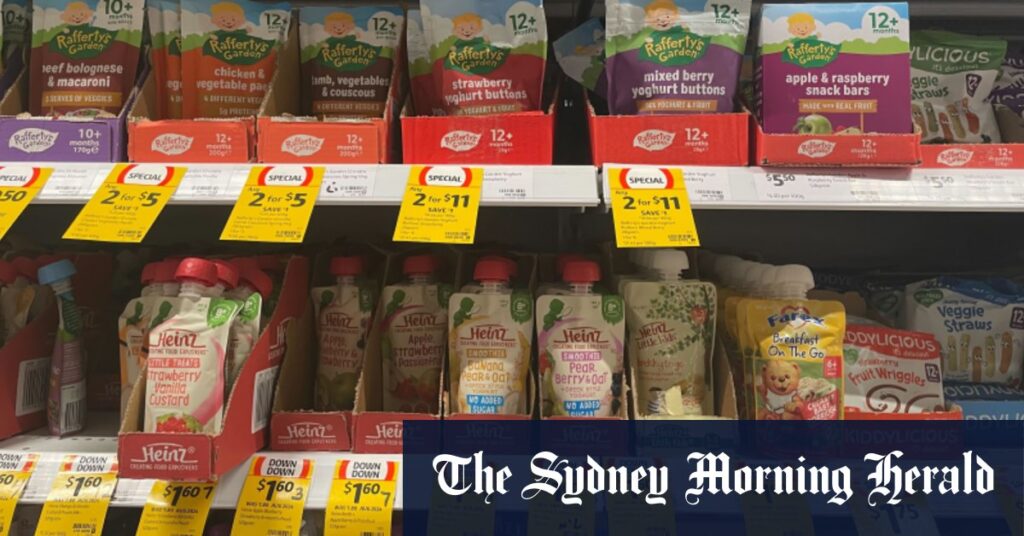Previous Australian research has revealed a high number of unregulated and potentially misleading claims on baby and toddler food packaging. Earlier this year, peak medical bodies urged the federal government to overhaul the voluntary code for manufacturers of baby formulas containing high and unnecessary amounts of sugar.
Lauren Brenton, a mother-of-four and midwife from Caringbah, south-east Sydney, makes her own vegetable purées but turned to toddler snacks when she was looking for something easy to feed her children when they were young.
Lauren Brenton is one of many parents who have turned to toddler snacks marketed as healthy and convenient.Credit: Janie Barrett
Many of them were marketed as containing “real fruit” or being “natural”, but the ingredients list told a different story.
“It makes me kind of angry … I’m specifically buying things that are a lot more expensive because they are marketed that way,” she said. “Parents don’t know what they’re actually buying.”
Federal Assistant Health Minister Ged Kearney said she was “seriously concerned” by the figures and was working with the states and territories to improve the composition, nutritional profile and labelling of foods.
“As a nurse, mum and grandmother, I want to make sure that Aussie kids have the best start in life,” she said. “Kids’ food is high in sugar and covered in confusing and misleading claims. It’s not good enough.”
A consultation paper prepared for Australia’s food ministers earlier this year noted that most commercial foods for infants and young children did not provide adequate nutrients critical for early development. Many products were high in energy and sugars.
The paper, written by health bureaucrats from across Australia and New Zealand, was critical of industry labelling practices, noting they “may be misleading and do not support parents and caregivers to make the best informed choices”.
Any change to the Australia New Zealand Food Standards Code would require a request from food ministers followed by a consultation process, a spokesperson for the Department of Health and Aged Care said.
Read the full article here
